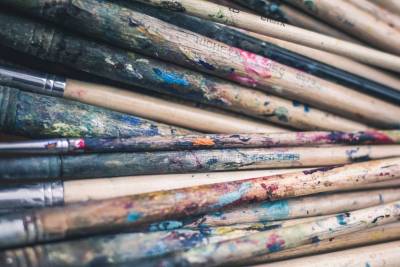
So you’ve tried making changes to your artwork process, your habits, your daily work rituals, and nothing seems to work. You always eventually fall off the wagon, only to try again in a few month’s time.
The good news is that there’s a way to break this cyclical thought process: the toxic idea that you’re just lazy and need to be more productive. I want to introduce you to a new way of thinking:
IT’S NOT YOU, IT’S THE SYSTEM
What exactly does this mean? We’re gonna discuss the “what” and the “how” so you can start incorporating this into your artwork process, your work, and your life in general.
THE WHAT
“I just need to find the right motivation.”
“Other people do this easily, why is this so hard for me?”
“I’m just being lazy.”
Do any of these sound familiar? Either from other people in your life or from your own thoughts?
Our capitalist society places heavy emphasis on the importance of productivity. The culture within the art industry similarly represents a similar mindset. It’s not only occasional productivity but constant, to the point of feeling guilty when we aren’t “productive” (aka working, which isn’t actually the same thing, though we often use both terms interchangeably).
We are also constantly exposed to examples of ideal lifestyles through social media. We see other artists with perfectly organized workstations and decorated studios. They seem to flow easily through the different stages of a painting, never struggling or making mistakes, always presenting masterpiece after masterpiece.
We have all these factors competing to remind us to always remain productive. That we are lazy if we aren’t productive.
I have a personal theory that true laziness doesn’t exist.
People that are accused of being lazy (or who are accusing themselves of laziness) are either overworked, or they don’t have the physical, emotional, or social, support that they need. Any of those things, or, they just haven’t found the right system yet.
A system is a way of getting things done. Everyone has a slightly different system. It can be the order in which you do things, your organization style, the way you work, etc.
I think we all have this idea in our head of what a “good” system looks like, even what the “perfect” system looks like. We see the way other people function, point to that and say “That’s how I want to be!” only to consider ourselves failures when it doesn’t work out exactly as planned.
This type of thinking is fundamentally flawed because it assumes that there is morality to a system in the first place. As if there are good systems vs. bad systems, and basically every process that isn’t the “perfect” system automatically falls into the bad category.
So the goal of all this is to identify which system works best for you, regardless of what you think the perfect version looks like.
THE HOW
So how do we figure this out in the first place?
Maybe, as a theoretical example (absolutely and most definitely NOT based on personal experience whatsoever lol), you really hate cleaning your paintbrushes. You hate the whole process, it’s a huge chore. If there were an environmentally and budget-friendly way of using a new brush every time you paint, you would do that.
If we use this as an example, you might think that ordering super expensive brushes would help you become the type of person that loves to clean their brushes. While there is a chance of that, it’s a pretty big jump to go from one end of the spectrum (despises cleaning brushes) to the other end (only uses super expensive high-end brushes).
So, logically, you should consider what the very next step would be for you, based on where you’re at right now.
Instead of stressing out over ruining expensive brushes, you can embrace your personal system for now and find whatever IS working and expand on that. For example, you could try and use less brushes during your painting session so you don’t have as many to clean in the first place. Maybe you experiment with oil vs. turpentine vs. soap, etc., to see what process is fastest for you.
In any case, it’s been shown that gradual changes are more effective than dramatic, sweeping changes. Just focus on the next step, and over time, you’ll find a system you’re comfortable with.
When you’ve tried multiple options and none of them seem to work, keep experimenting.
You just haven’t found the right system (for you) yet!


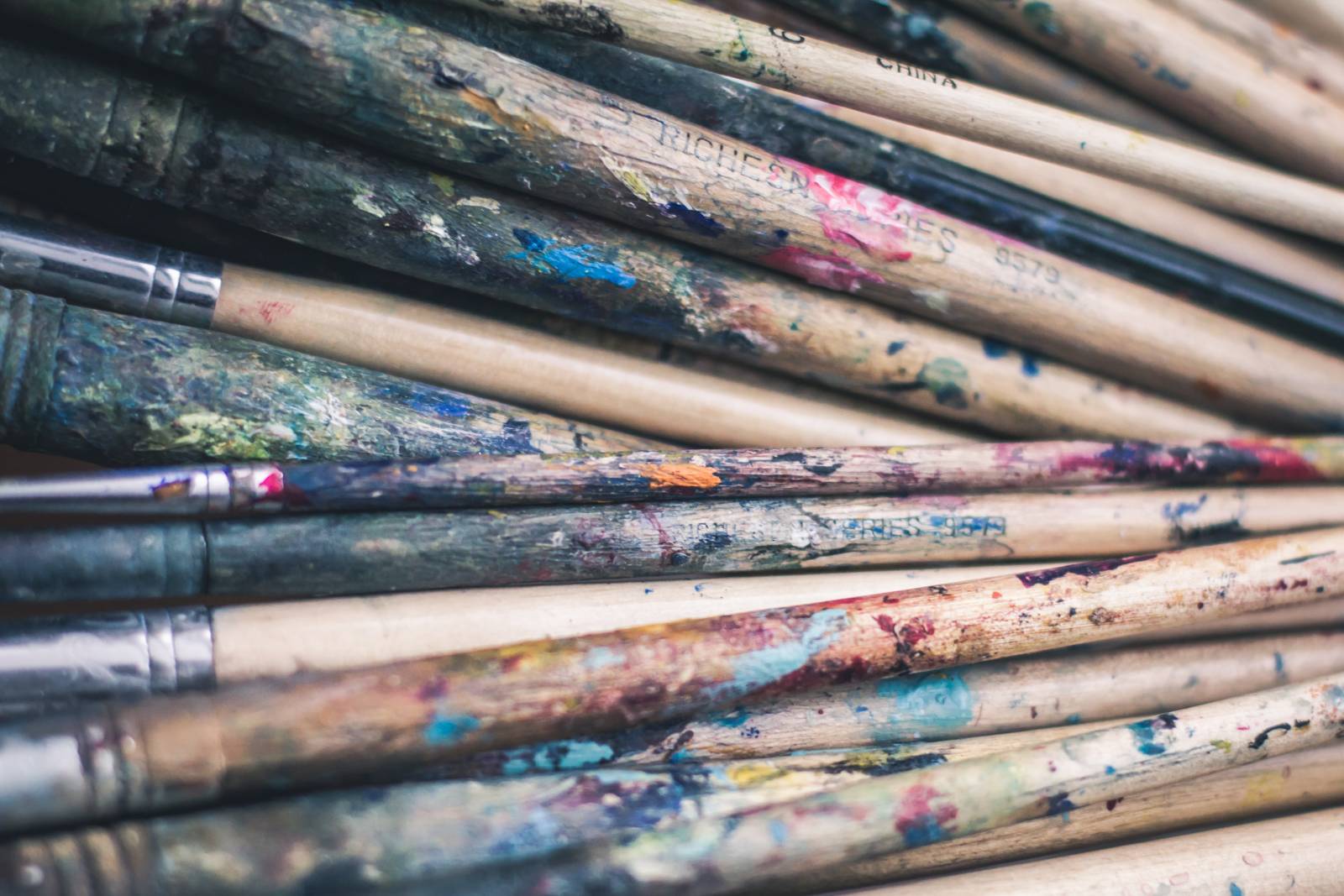
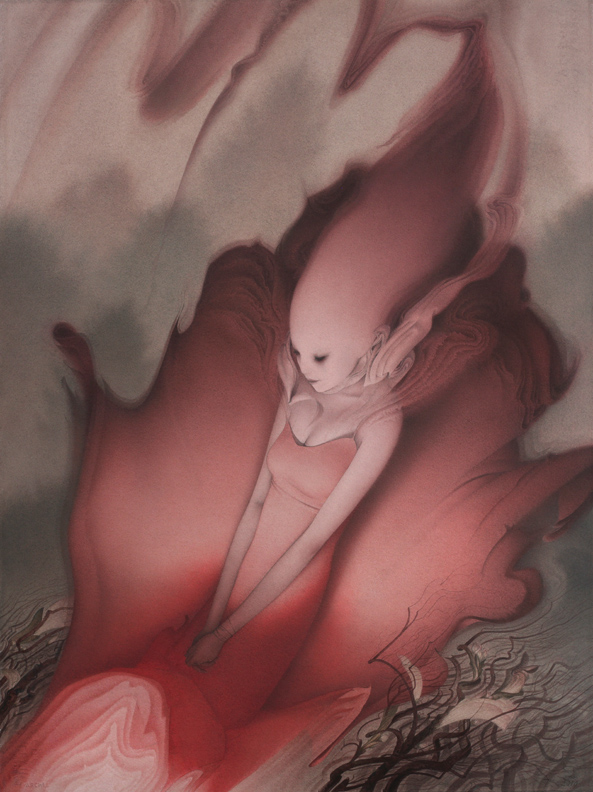

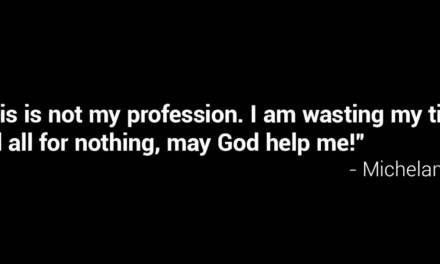
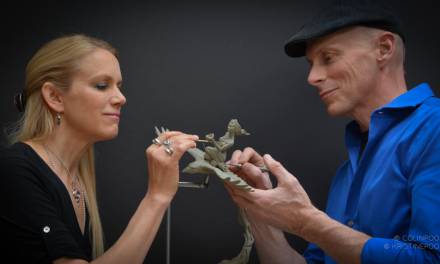
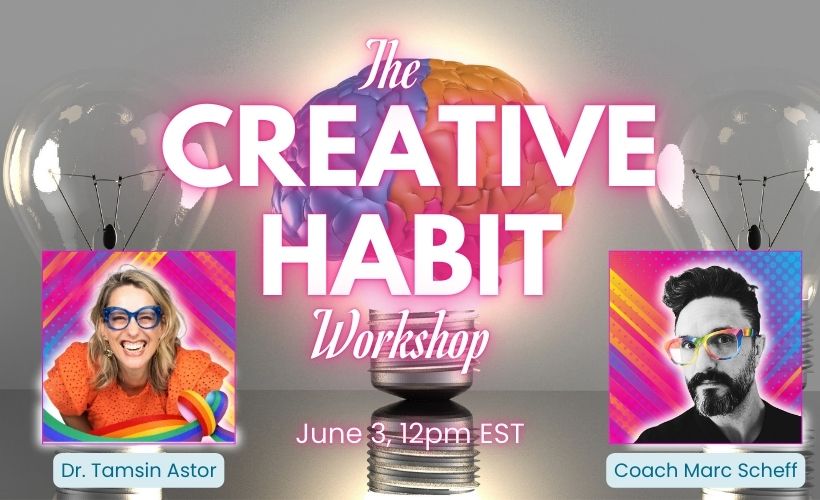
Something I realized about myself many years ago is that I am lazy. No getting around it. I am lazy. If I don’t want to do something and I can justify not doing it, “ah! Sweet Sloth!” I will not do it. At some point I had to come to grips with the fact I wasn’t merely a procrastinator, I was lazy.
And I realized not long after, that was a big boon for my clients.
Because I am lazy, I don’t want to be working on a project if I don’t need to be working on a project. To be honest here, I’m talking about digital art and design projects, not traditional media which tends to suck my attention into a deep dark pool. Laziness has been a huge motivator for me to learn software, learn technical details, and learn new techniques, and even create new processes to enhance productivity. Why? So I can get a client’s work done to their complete satisfaction with minimal revision, and get back to being lazy.
I was discussing this a couple years back with a client, who laughed and said “that’s nuts. You’re the least lazy person I know! All of the stuff you create for us, and you do it so fast!’ Which made me laugh and say, “Because I learned what you need and how to create it in the least amount of time, so if I do it fast and right, I get more time to do something else, like read. Or daydream.”
I think your point about all the “perfect this, perfect that” that we’re inundated with is spot on. It can be a drain on people who have not inured themselves to it. And even then, some note of its siren call slips through and niggles at the artistic brain urging us to do more. What I tell students and developing creatives is not to compare the work of others to theirs. Instead, take inspiration from it, but compare your work against your work from 6 months ago, or a year ago. Are you growing? Imagine the you of a year from now. Are you getting closer to what you envision? Don’t compare yourself to Donato and Greg Manchess with 439 combined years of experience with oil painting. Compare you with 2 years against the you with none.
Keep at it. Keep learning, and growing and creating. Just don’t be lazy.
Haha – I’ve heard Greg say pretty much the same thing. He’s so efficient with his brush strokes and mixing the color before it goes on the canvas. I try to be more “lazy” but still end up mushing and blending my brushstrokes into submission.
To Miranda’s point, our well-being and mental health are equally, actually more, important to our development as artists. It’s the thing non-artists understand the least about being an artist. All the self-doubt, frustration, and ups and downs can really take a toll on “productivity”.
Thanks, Miranda, for bringing this up!
Ha! Your comment about Donato and Greg’s combined experience made me laugh. It’s too true.
Reading your comment I think I might be the exact opposite. For many years I thought I was lazy. But now I’m starting to think that it’s procrastination due to perfectionism. My two big personal portfolio projects are NOT minimal revision. I’m not just my own worst critic, I’m my own worst client. Constant scope increase, moving target for the goal of the piece, and “I’ll know it when I see it”.
The best advice I’ve ever heard for any creative is “know thyself” and I hear Miranda getting at that in this article with her example of the brush washing. For me, I have to have an external deadline. I cannot make personal ones concrete. So, even though it is making my a little anxious and nuts, I’ve signed up for some things and that give me external deadlines for my personal work. It’s working! I now have to reign in my scope to match the deadline instead of having an ever changing scope with and equally ever changing deadline.
What a fantastic article, lots of good points throughout. As for the brush cleaning, the using less brushes for each session became my system to use as a workaround haha.
The part about buying expensive brushes to trick yourself into liking the process of cleaning them reminded me of this line from Mitch Hedberg’s stand-up:
“I bought a seven-dollar pen because I always lose pens and I got sick of not caring.”
-Mitch Hedberg
I totally relate to brush cleaning, and as a not-at-all-personal suggestion 😉 I use brush dip from Geneva. It absolutely changed my painting habits, since I was no longer signing up for an obligatory brush washing after each session.